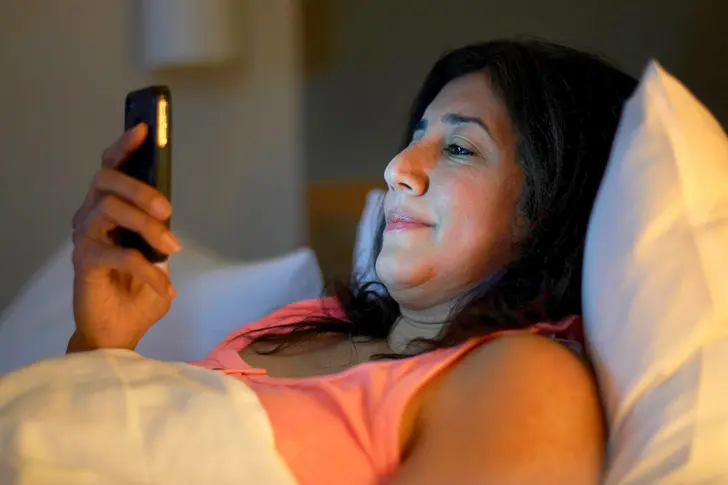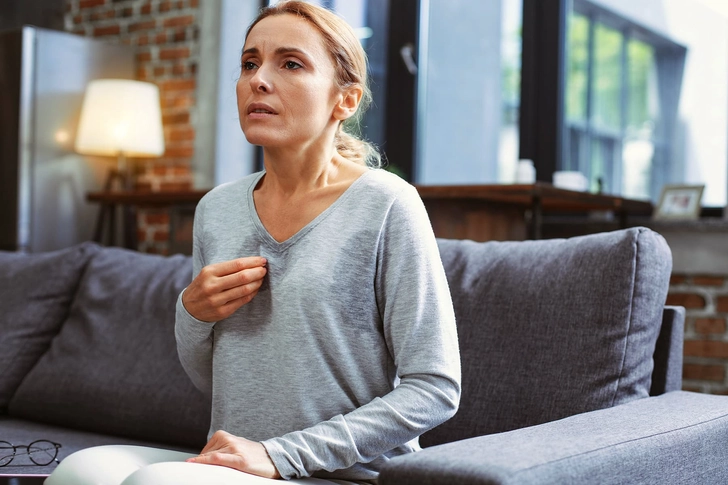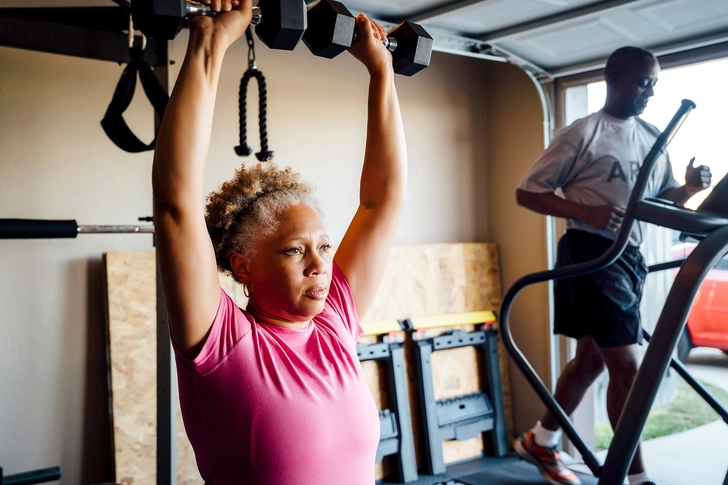- Overview
- Symptoms
- Risks, Prevention & Screening
- Tests & Diagnosis
- Types
- Your Breast Cancer Care Team
- Treatment
- Living With Breast Cancer
- Remission & Recurrence
- Advanced Breast Cancer
- Support & Resources
- Appointment Prep
- View Full Guide
8 Challenges You May Face While Aging With Breast Cancer



Breast Cancer and Aging: Why It Matters
Aging comes with a wide range of changes. You may not remember things like you used to. You may start to lose your hearing or notice other ways your body is changing. And if you were recently diagnosed with hormone receptor-positive (HR-positive), HER2-negative breast cancer before menopause, your hormones will shift over time. This can bring on symptoms including hot flashes and trouble sleeping. If you’ve already gone through menopause, you may be familiar with these symptoms. Even though there are many ways to stay healthier with age, aging with breast cancer presents unique challenges. Studies suggest breast cancer treatment also can speed up the aging process, too.

Rapid Bone Loss
As you approach menopause and estrogen levels drop, you start to lose bone. After age 50, the risk of breaking a bone due to osteoporosis goes up to 50%. Your treatment for HR+ breast cancer may make bone loss happen even faster. Ask your doctor about a scan to check your bone density, your risk of bone loss, and steps you can take to protect your bones, including:
- Getting plenty of calcium and vitamin D
- Prioritizing weight-bearing exercises
- Taking medicines (bisphosphonates) to keep your bones stronger

Sudden Hormonal Shifts
Menopause happens as your ovaries stop making as much hormones, including estrogen. This transition often comes with symptoms such as:
- Hot flashes
- Night sweats
- Vaginal dryness
- Trouble sleeping
Your breast cancer treatment, including hormone therapy, may cause more sudden hormonal shifts. Chemotherapy or other treatments may put you into menopause suddenly if you haven’t gone through it already, either temporarily or permanently. As a result, your menopause symptoms may be even more extreme. While hormone replacement therapy isn’t recommended when you have HR-positive breast cancer, ask about other treatments to help with your symptoms, such as antidepressants or nonhormonal medicines for hot flashes.

Loss of Muscle Mass
After your 30th birthday, you’ll start to lose muscle. This is true for everyone. Your breast cancer and its treatment, including chemotherapy and hormone therapy, worsens muscle loss. The muscle loss you get during the natural aging process won’t help matters, either. If you’re inactive, you may lose muscle even faster. Ask your doctor about aerobic exercises or resistance training to help keep you strong. All adults need at least 150 minutes of exercise each week, such as walking briskly. Aim to include activities to make your muscles stronger at least two days a week.

Trouble With Memory
It’s not uncommon to notice changes in memory as you get older. You may forget things more often than before. If you’re in perimenopause or menopause, you could notice memory trouble or “brain fog” related to that, too. Your treatment for HR+ breast cancer can put you into menopause or speed it up and cause many of the same symptoms. Memory problems and trouble concentrating also are side effects of chemotherapy known as “chemo brain.” Ask your doctor what you can expect, ways to improve your memory or cope with memory loss, and whether you should see a specialist.

Chronic Fatigue
While some amount of tiredness can be normal, you shouldn’t feel fatigued nonstop for weeks. It could be a sign of another health problem. If you’re struggling with anxiety, depression, or stress as you face getting older with breast cancer, this may also leave you feeling exhausted. Cancer fatigue is common and can have multiple causes. About 7 in 10 people with cancer say they have fatigue.
If you find yourself feeling weary and exhausted, talk to your doctor. Get help with side effects — such as pain or anemia— that may play a role. Other strategies to help include:
- Eating nutritious foods
- Staying hydrated
- Lowering stress
- Sleeping at regular hours
- Exercising

Joint Pain and Stiffness
Joint pain and stiffness are common with age, even though they don’t happen to everyone. It can happen from normal wear and tear over time, arthritis, or other health conditions. Joint pain also can be a side effect of hormone therapies you’ll take to treat your cancer and lower your risk for a recurrence. Some types of chemotherapy or other treatments can also lead to bone pain. Talk with your doctor about the severity of your joint pain. Ask about medicines that may help or other strategies, such as acupuncture, exercise, or massage.

Challenges With Emotional and Mental Health
Aging can be hard on your mental health, especially when you’re living with breast cancer. Feelings of loneliness, stress, anxiety, and depression are also common issues that come with aging. About 1 in 4 women with breast cancer at any age have depression. Hormonal shifts related to your treatment can also affect your mood. Reach out to the people in your life for support. Consider joining a support group in person or online. Ask your oncologist to refer you to a mental health professional who can help.

Slower Recovery Time
As you get older, it may take longer to recover after exercise. It also takes longer to heal after an injury or surgery. Recovering from breast cancer and its treatment also takes time. Ask your doctor how long you should expect your recovery to take based on your age and treatment plan. For example, for every month of chemotherapy, it may take two months to recover. It may take longer the older you are. To manage during recovery, give yourself grace. Focus on what’s most important to you, and ask the people in your life for help when you need it.

Other Challenges You May Face
Everyone loses friends and family members over time. If you’re involved in the breast cancer community, you may experience this even more. Losing loved ones may cause you to age faster. In addition, breast cancer and its treatment comes with other challenges, too. For example, treating HR-positive breast cancer can be hard on your finances. This is especially true if your cancer or its treatment has kept you from working or you’ve had considerable out-of-pocket costs. Whatever your challenges are, reach out for help. Many cancer centers have social workers who can assist with resources. Ask about programs that can help you cover your treatment or other everyday costs.
IMAGES PROVIDED BY:
1) Connect Images/Getty Images
2) BSIP/Medical Images
3) iStock/Getty Images
4) Tetra images/Getty Images
5) Stone/Getty Images
6) iStock/Getty Images
7) E+/Getty Images
8) E+/Getty Images
9) iStock/Getty Images
10) E+/Getty Images
SOURCES:
World Health Organization: “Ageing and health.”
MD Anderson Cancer Center: “7 things to know about menopause and breast cancer.”
UCLA Health: “Study finds common breast cancer treatments may speed aging process.”
Cleveland Clinic: “Menopause,” “Joint Pain.”
Shari Goldfarb, MD, breast medical oncologist, Memorial Sloan Kettering Cancer Center, New York City.
Jasmine Sukumar, MD, breast medical oncologist, MD Anderson Cancer Center, Houston.
Current Opinion in Clinical Nutrition and Metabolic Care: “Muscle tissue changes with aging.”
Breast Cancer Research: “The bone–muscle connection in breast cancer: implications and therapeutic strategies to preserve musculoskeletal health.”
CDC: “Physical Activity Recommendations.”
National Institute on Aging: “Memory Problems, Forgetfulness, and Aging,” “Fatigue in Older Adults.”
The Menopause Charity: “Brain fog.”
Cancercare: “Chemo Brain: What You Need to Know.”
Breastcancer.org: “Cancer Fatigue,” “Menopause and Menopausal Symptoms,” “How Breast Cancer Can Affect Mental Health.”
Living Beyond Breast Cancer: “Bone & joint pain.”
National Institute of Mental Health: “Older Adults and Mental Health.”
Breast Cancer Now: “Coping with breast cancer emotionally.”
Cells: “Age-Associated Differences in Recovery from Exercise-Induced Muscle Damage.”
Dermatologic Clinics: “Wound healing and aging.”
Sanford Health: “Ways to help recover from chemo and how long it takes.”
Columbia Mailman School of Public Health: “Losing a Loved One May Speed Up Aging, Study Finds.”
JAMA Network Open: “Financial Toxicity Among Patients With Breast Cancer Worldwide.”
Cancer Support Community: “5 Ways Oncology Social Workers Can Help After a Cancer Diagnosis.”